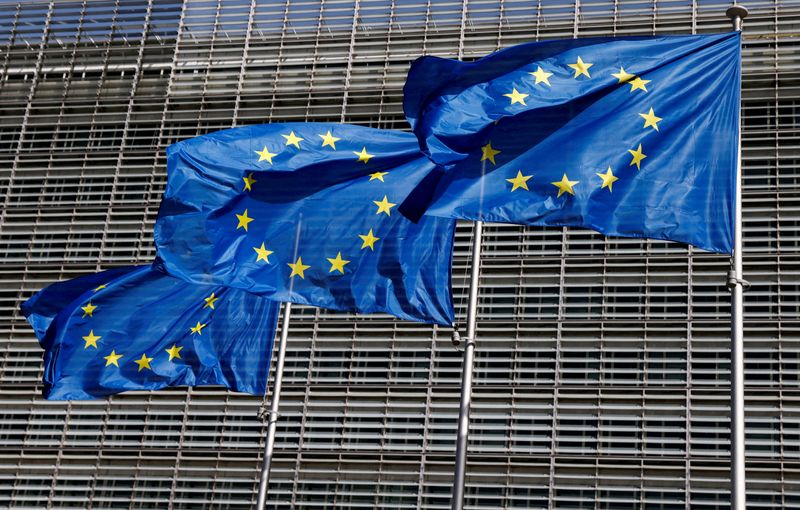By Kate Abnett
BRUSSELS (Reuters) - European Union countries are hunting for alternatives to an EU plan to use a carbon market reserve to help finance their exit from Russian gas, as some fear the proposal would undermine the bloc's main climate change policy.
As part of its aim to end Europe's reliance on Russian gas this decade, the European Commission has said countries could raise 20 billion euros for new energy investments by selling CO2 permits stored in the EU carbon market's "market stability reserve".
The proposal ran in to resistance from some countries who said opening up the reserve would undermine the EU's carbon market and depress the carbon price - making it cheaper for power plants and industries to pollute.
EU countries are negotiating the proposal, and plan to largely rewrite the EU's idea. A draft of their latest negotiations text, seen by Reuters, would use CO2 permits from the reserve to raise only 4 billion euros.
Instead, the other 16 billion euros would come from an EU Innovation Fund - an existing pot of carbon market revenue that is currently spent on breakthrough green technologies.
Denmark had previously suggested using this fund to raise the cash, while the Netherlands proposed combining this fund with proceeds from CO2 permit sales held earlier than planned.
One EU country diplomat said there was consensus among countries to avoid using the ETS reserve "as a cash cow", but that an alternative deal had not yet been struck. Diplomats will discuss the latest proposal next week and are aiming for an early October deal.
France also weighed into the debate this week, with a paper that advocated pulling forward auctions of ETS permits to raise the cash.
Brussels' original proposal risked "eroding the ETS market’s integrity and credibility," said the French paper, seen by Reuters.

The EU carbon market reserve launched in 2019 to tackle a problem of oversupply that had weighed on ETS prices for years. Since then, carbon permit prices have surged.
The Commission had said any surplus caused in the carbon market by its proposal would be re-absorbed by the reserve in future years.